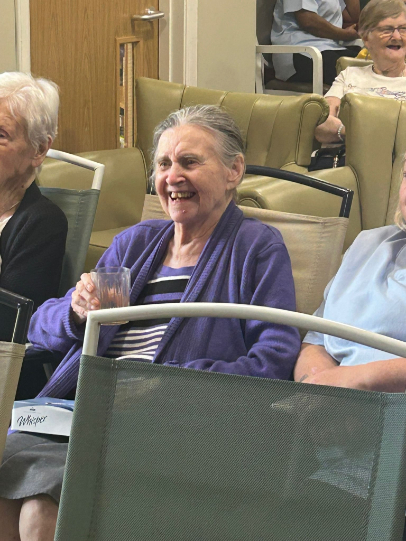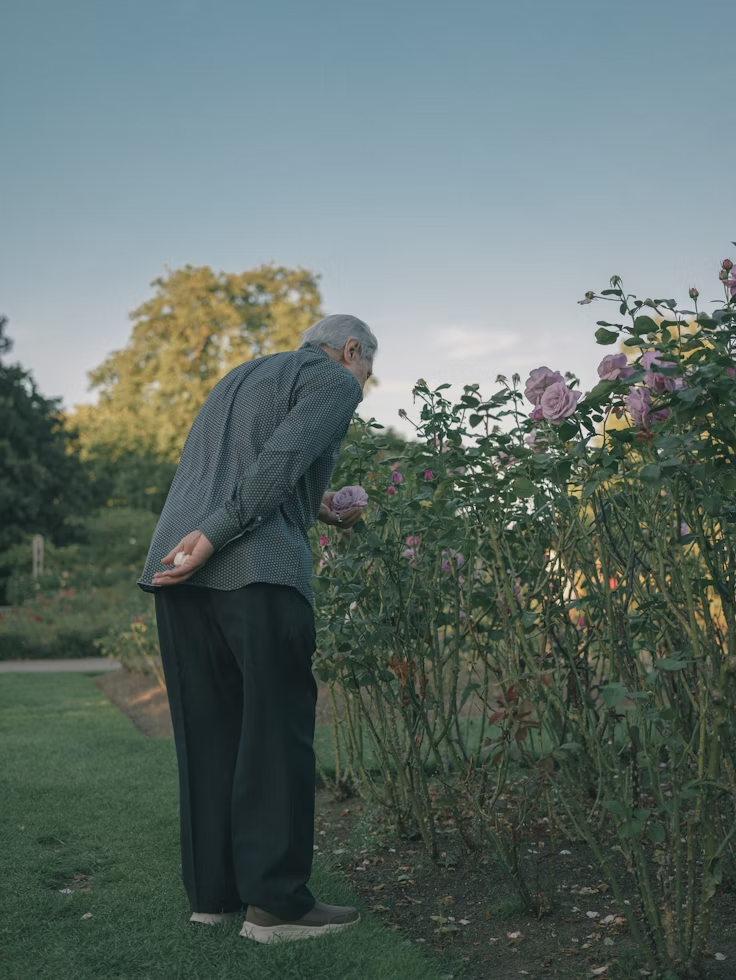How Music Therapy Supports Dementia Care

Music has an extraordinary ability to reach people on an emotional level, even when words are difficult to find. For those living with dementia, the familiar rhythm of a song can unlock memories, spark joy, and create moments of calm and connection. Whether it is a favourite tune from youth or a gentle melody played during the day, music has the power to comfort and inspire in ways that other forms of therapy often cannot.
At Springvale Care Home in Lennoxtown, music is more than just background entertainment. It is a valuable part of dementia care that helps residents express themselves, communicate, and experience meaningful moments of happiness and peace.
Understanding Music Therapy
Music therapy is a structured and evidence-based approach that uses music to promote well-being. It is led by trained professionals who use different techniques such as singing, playing instruments, listening, or gentle movement to music. The sessions are designed to engage the brain, encourage interaction, and reduce anxiety.

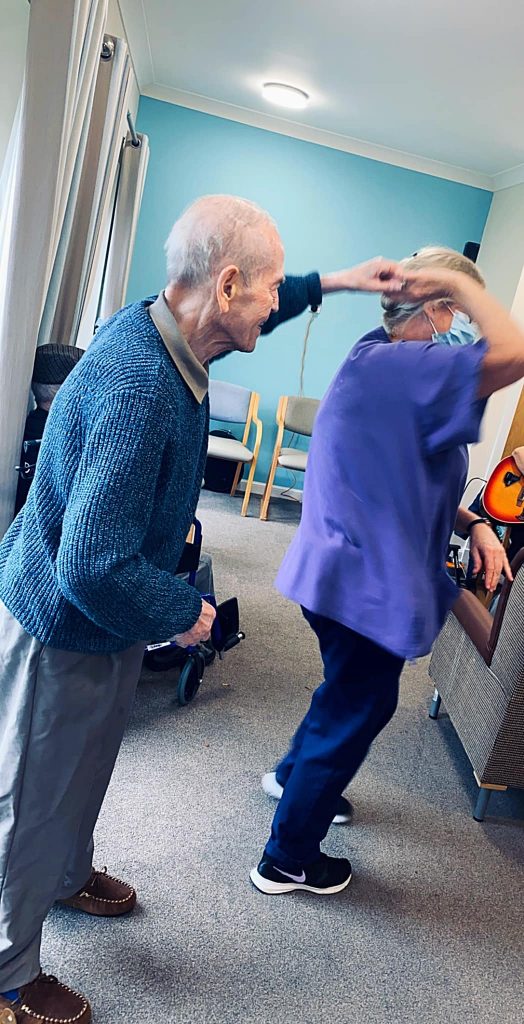
The focus is never on musical ability. Instead, it is about using rhythm and melody to connect with memories and emotions. For people living with dementia, parts of the brain that process music often remain active long after other cognitive functions decline. This means that even when communication becomes difficult, music can still reach and comfort the individual.
During sessions, residents might hum along, tap their hands in rhythm, or simply close their eyes and relax. Every small response matters, as it helps residents feel present, supported, and understood.
Emotional and Cognitive Benefits
As dementia progresses, people can struggle to communicate or recognise those around them, which can be distressing. Music therapy helps to bridge that gap by stimulating memory and emotion. A single song can bring back long-forgotten moments and encourage conversation.
Scientific research has shown that music activates areas of the brain related to emotion, language, and memory. Because of this, listening to music can reduce confusion, encourage alertness, and lift mood. Many residents become more engaged after a session, smiling more, speaking clearly, or showing renewed enthusiasm for their surroundings.
For loved ones, seeing these changes can be incredibly heart-warming. It reminds families that the person they know and love is still there, just waiting for the right melody to bring them back into the moment.
Reducing Anxiety and Agitation
People with dementia can often experience restlessness, frustration, or anxiety, particularly when their environment feels unfamiliar. Music has a calming effect that helps to reduce these emotions and create a sense of comfort.
Soft, gentle music such as classical pieces or lullabies can help slow breathing and ease tension, while livelier songs can lift the atmosphere and encourage participation. Even something as simple as playing a resident’s favourite tune during personal care or before bedtime can make a noticeable difference in how they feel.


The consistency of hearing familiar songs also helps to provide reassurance. Regularly scheduled music sessions can give structure to the day, helping residents feel safe and more at ease in their environment.
Building Social Connection
Music is a universal language that brings people together. In a care home, it encourages shared experiences that strengthen the sense of community. Group sessions give residents the chance to sing, clap, or dance together, which naturally leads to smiles, laughter, and conversation.
Family members are often invited to join in, helping to create joyful moments that everyone can share. These sessions also allow families to connect with their loved ones in a new way, especially when communication has become difficult.
Even residents who no longer speak or engage verbally can respond to rhythm and melody. The gentle tapping of a foot or a soft smile can speak volumes about the comfort they feel during music therapy.
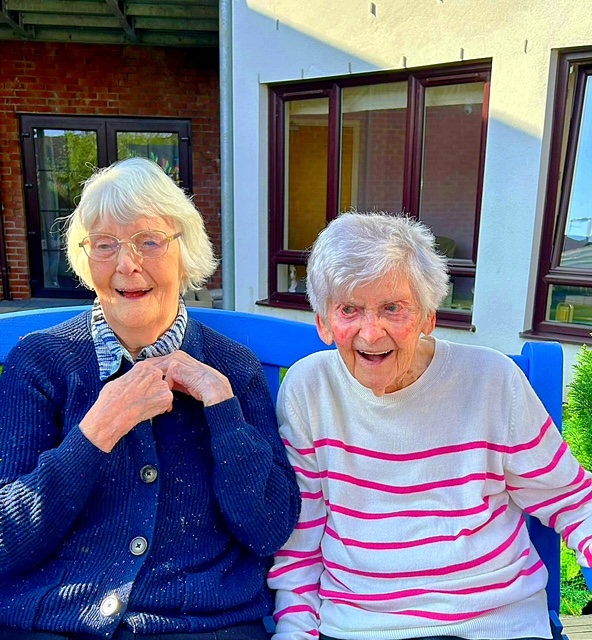
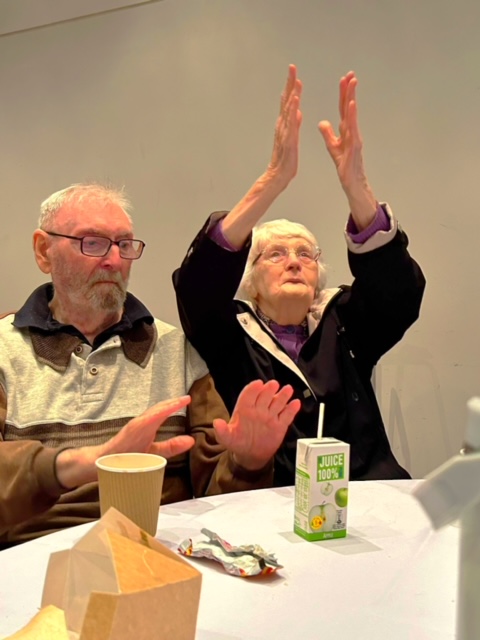
Physical Benefits of Music Therapy
Although it is primarily known for its emotional and cognitive effects, music therapy also supports physical health. Singing can help with breathing control and posture, while gentle movement to music promotes flexibility and coordination.
Even small actions, such as clapping, tapping, or swaying, increase blood flow and stimulate muscle activity. These light forms of exercise are particularly beneficial for residents with limited mobility, helping them stay active in a safe and enjoyable way.
In many cases, residents who were previously reluctant to take part in physical activity find themselves moving naturally to the rhythm of a favourite song, proving that exercise can be both therapeutic and fun.
Unlocking Memories Through Music
One of the most remarkable aspects of music therapy is its ability to unlock memories that may seem lost. A song might remind a resident of their wedding day, a childhood holiday, or a family celebration. These moments of recollection often lead to conversation, smiles, and a renewed sense of identity.
Families often describe these experiences as magical. Hearing a loved one sing along to a song they have not heard in years or watching them tap their foot in perfect rhythm can be incredibly moving. It demonstrates that the emotional connections built through music remain strong, even when memory fades.
For carers, these responses also provide valuable insight into a resident’s history and preferences, helping to shape more personalised care plans.
Music and Dementia Care at Springvale Care Home
At Springvale Care Home, music plays an important role in daily life. Our approach to dementia care combines professional expertise with genuine compassion, and music is at the heart of this philosophy.
We regularly host live performances, sing-along sessions, and themed music days to bring joy and variety to our residents. Every resident is encouraged to share their favourite songs, and our care team often creates personalised playlists that can be played during quiet moments or times of anxiety.
Our communal spaces, such as the library and private garden, often become the setting for these sessions. Whether residents are singing along to old favourites or enjoying the peaceful sounds of a live musician, music brings warmth and connection to every day.

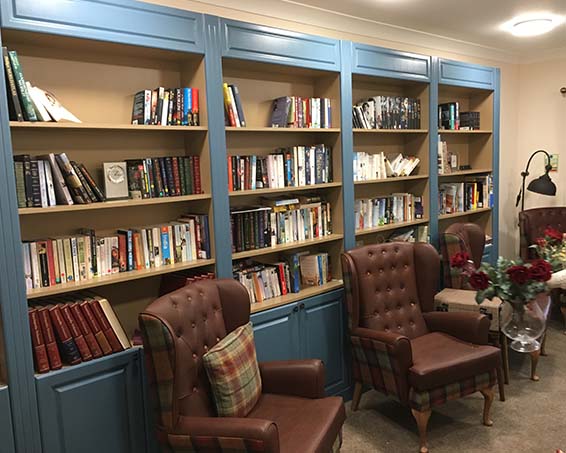
Experience the Joy of Music at Springvale Care Home
Caring for someone with dementia requires patience, understanding, and creativity. At Springvale Care Home, we believe that music is one of the most powerful tools for improving quality of life. Every melody has the potential to bring comfort, spark joy, and create moments that truly matter.
If you would like to learn more about how our team supports residents living with dementia through music and other engaging activities, we would be delighted to welcome you. Get in touch with us today to arrange a visit and experience our warm and compassionate community for yourself.




